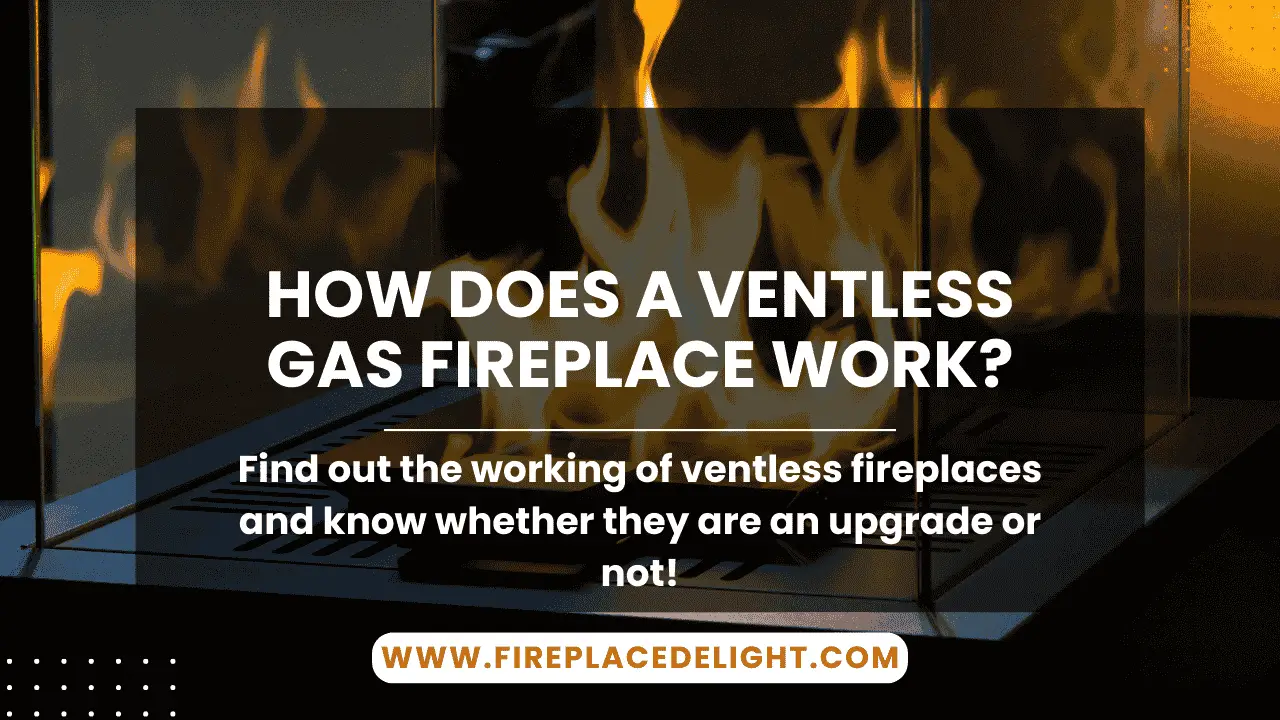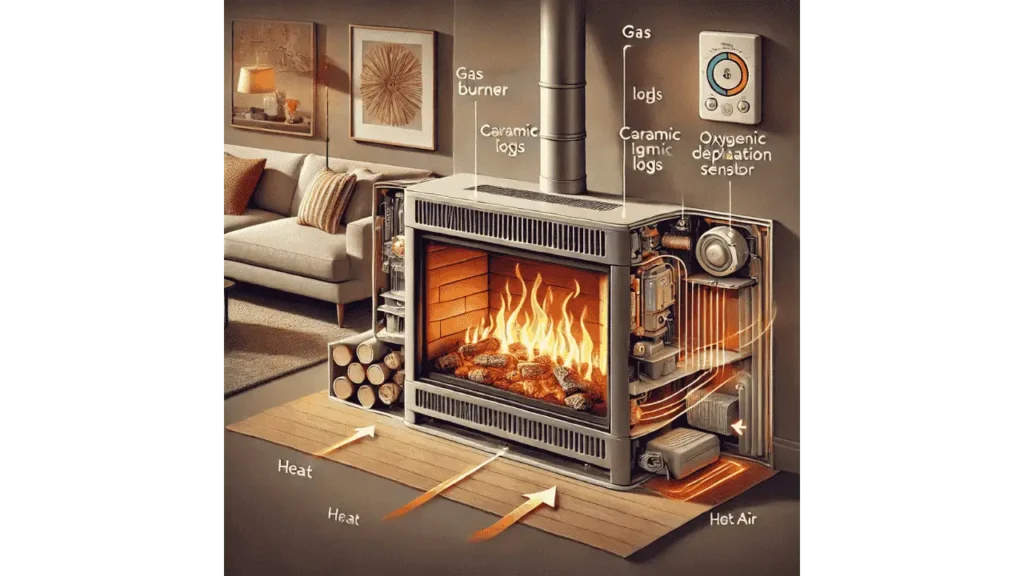If you’ve ever wanted the warmth and ambiance of a fireplace without the hassle of venting or installing a chimney, ventless gas or ethanol fireplaces could be the perfect solution. I know the struggle of wanting a cozy fire without complex installations. In this guide, we’ll break down how ventless fireplaces work, the differences between gas and ethanol options, and why they might be the ideal addition to your living space. Let’s dive into the pros and cons to help you decide which one fits your home best!
What is a Ventless Fireplace?
A ventless gas fireplace, also known as a vent-free fireplace, operates without the need for a chimney or external vent. These units burn natural gas or propane and are designed to burn so efficiently that nearly all the heat and combustion byproducts stay in the room. Unlike traditional fireplaces, ventless models rely on indoor air for combustion and have built-in sensors to monitor oxygen levels, making them both space-saving and easy to install.
What is the Difference Between a Vented Fireplace and a Vent Free Fireplace?
Ventilation: Vented fireplaces use a chimney or flue to expel gasses outside, while ventless fireplaces release combustion byproducts into the room, relying on clean-burning technology.
Heat Efficiency: Ventless fireplaces are more heat-efficient, as they don’t lose heat through venting. Vented models can lose up to 30% of heat through the chimney.
Installation: Ventless fireplaces are easier to install, as they don’t require any external venting. Vented fireplaces need more complex setups with chimneys or flues.
How Does a Ventless Fireplace Work?
A ventless gas fireplace burns natural gas or propane with high efficiency, producing minimal emissions. It draws air from the room for combustion, and the byproducts, mainly water vapor and carbon dioxide, are released back into the room. These fireplaces are equipped with oxygen depletion sensors (ODS) that automatically shut off the gas if oxygen levels drop too low, ensuring safety. They produce a clean, warm flame without the need for a chimney or vent, making them ideal for homes where venting isn’t an option.
Ventless Gas Fireplaces vs. Ventless Ethanol Fireplaces: Which Is Better?
Both ventless gas and ethanol fireplaces offer easy installation and high efficiency, but they differ in fuel type and functionality. Ventless gas fireplaces use natural gas or propane and provide more heat, making them better for heating large spaces. On the other hand, ventless ethanol fireplaces burn ethanol, which produces less heat but is a cleaner-burning fuel with no need for gas lines or connections. If you want a stronger heat source, ventless gas is the better option, while ethanol is great for ambiance and flexibility.
Why a Ventless Ethanol Fireplace is The Perfect Addition to Your Living Space
Ventless ethanol fireplaces offer several benefits, making them a great option for modern homes. Let’s explore why they’re worth considering.
Safety Features
Ethanol fireplaces burn clean, producing no harmful fumes or gasses. They don’t require a vent or chimney, and many models come with safety features like automatic shut-off mechanisms.
Easy Installation
These fireplaces are incredibly easy to install. With no need for gas lines or venting, you can set them up quickly without professional help, saving time and money.
Can Be Placed Anywhere In Your Home
Since ethanol fireplaces don’t need venting, they offer complete flexibility in placement. You can install them in any room, living areas, bedrooms, or even outdoor spaces.
Learn More: Who Repairs Gas Fireplaces
Energy-Efficient
Ethanol fireplaces are energy-efficient, producing heat without wasting energy on venting. While they don’t generate as much heat as gas fireplaces, they’re perfect for smaller spaces or as supplemental heating.
Bottom Line
Ventless gas fireplaces offer a convenient, efficient way to add warmth without the need for a chimney, while ventless ethanol fireplaces provide flexibility and clean-burning fuel. Both options are great for modern homes, depending on your heating needs. With easy installation and energy efficiency, they’re a fantastic addition to any space, giving you warmth and style without the hassle.
- 27 Farmhouse Fireplace Ideas That Bring Warmth & Charm - August 18, 2025
- 25 Fireplace Lighting Ideas to Illuminate Your Hearth - August 7, 2025
- How to Replace an Electric Fireplace Switch? - August 5, 2025



